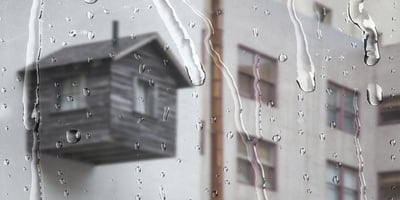Should You Cover Air Conditioner in Winter: The Truth About Winter Air Conditioner Covers
This article delves into the intricacies of winter home maintenance, focusing specifically on the debate surrounding the use of air conditioner covers when the temperature drops. Is it a necessary precaution to protect your AC unit from the harsh winter elements, or could covering your air conditioner do more harm than good? Throughout this exploration, we will uncover the pros and cons of this age-old practice, allowing homeowners to make informed decisions about the winter care of their HVAC systems. Whether you're a diligent protector of your investments or a minimalist in your approach to maintenance, this article aims to shed light on the truth about winter air conditioner covers, helping you make the best choice for your home.
The Case for Covering Your Air Conditioner
When it comes to covering your air conditioner during the winter months, there are several compelling reasons in favor of this practice. Let's delve into the advantages:
- Snow and Ice: Winter brings with it the risk of heavy snowfall and icy conditions. These elements can pose a significant threat to your air conditioner unit. Excessive snow accumulation can lead to moisture seeping into sensitive components, potentially causing damage or corrosion. Additionally, the weight of accumulated snow can strain the unit's structure. A cover provides a protective barrier, AC shielding from these potential hazards.
- Freezing Rain: Freezing rain is another formidable opponent during the winter season. When it coats your AC unit, it can freeze and create ice build-up, affecting the unit's functionality. An air conditioner cover acts as a barrier, preventing freezing rain from directly impacting your system and reducing the risk of ice-related damage.
- Preventing Debris and Leaves from Clogging the Unit: As autumn leaves fall and winter winds blow, debris such as leaves, twigs, and even small branches can find their way into your air conditioner's exterior components. These materials can clog vents and hinder airflow, potentially reducing the efficiency of your system. By covering your air conditioner, you create a barrier that helps keep debris out, ensuring your unit runs smoothly when it's time to use it again.
- Maintaining the Aesthetic Appeal of Your Outdoor Unit: Your outdoor air conditioning unit is a prominent feature of your home's exterior. A well-maintained, clean unit enhances the overall curb appeal of your property. By covering it during the winter months, you protect it from accumulating dirt, grime, and weather-related wear and tear. This can help preserve its appearance and keep it looking presentable throughout the year.
- Potential Energy Savings: While not a direct benefit of covering your air conditioner, maintaining the unit's efficiency can lead to potential energy savings in the long run. When your AC system is clogged with ice, debris, or damaged due to harsh winter weather, it may have to work harder to achieve the desired indoor temperature once the warmer months return. By safeguarding it with a cover, you contribute to the efficient operation of your AC system, which can translate into energy savings when you use it again.
The Case Against Covering Your Air Conditioner
While covering your air conditioner during the winter has its merits, it's equally important to consider the potential downsides and drawbacks associated with this practice. Here are some compelling reasons against covering your air conditioner:
- Trapped Moisture and Condensation: One of the primary concerns when covering your air conditioner is the potential for trapped moisture and condensation. When a cover is tightly sealed around the unit, it can create a microenvironment where moisture is trapped. This trapped moisture can lead to rust, corrosion, and other damage to the internal components of the AC unit. Over time, this can significantly reduce the lifespan of your system and result in costly repairs.
- Pest Infestations: Air conditioner covers can provide an attractive shelter for pests such as rodents, insects, and small animals seeking refuge from the cold. Once these pests find their way inside the cover, they can cause significant damage to the unit's wiring and other components. Additionally, the presence of pests can lead to unpleasant surprises when you remove the cover in the spring.
- Mold and Mildew Growth: Covering your air conditioner can create a dark, enclosed space where mold and mildew thrive. Moisture that gets trapped inside the cover, along with organic materials from leaves and debris, can create an ideal environment for mold and mildew growth. Not only can this compromise the air quality around your unit, but it can also lead to health concerns if the spores are introduced into your home's ventilation system.
- Potential Damage to the Unit from Rodents: In addition to attracting pests, air conditioner covers can become chew toys for rodents. Squirrels, mice, and other rodents may attempt to gnaw their way through the cover to access the warmth and shelter beneath. This can result in damage to the cover itself and potentially extend to the AC unit if they manage to infiltrate.
Expert Recommendations
When it decides whether or not to cover your air conditioner during the winter, it's wise to seek guidance from experts and consider various factors. Here are key expert recommendations to help you make an informed choice:
Manufacturer Guidelines:
Manufacturers of air conditioning units often provide guidelines and recommendations for winter maintenance. Refer to your AC unit's owner's manual or contact the manufacturer directly to understand their stance on covering your specific model during the winter. Following manufacturer recommendations ensures that you won't void warranties or cause unintended damage to your system.
Local Climate Considerations:
The climate in your area plays a significant role in determining whether covering your air conditioner is advisable. In regions with mild winters, covering the unit may not be necessary and could lead to some of the drawbacks mentioned earlier. In contrast, areas with harsh winters and heavy snowfall may benefit from protective measures. Consider your local climate conditions, including temperature extremes and the frequency of winter storms, when making your decision.
Balancing the Benefits and Drawbacks:
Ultimately, the decision to cover your air conditioner should be a balanced one, taking into account the potential benefits and drawbacks discussed earlier. Weigh the protection from winter elements against the risks of trapped moisture, pests, mold, and damage from rodents. Consider alternative winterizing strategies such as elevated platforms or hoods that may mitigate some of these concerns while still offering protection.
Alternative Strategies
If you're hesitant about covering your air conditioner during the winter months due to concerns about trapped moisture, pests, or other drawbacks, there are alternative strategies to consider. These methods aim to protect your AC unit while minimizing potential issues:
Installing a Winter Condenser Cover or Hood:
Instead of using a full cover that encases your entire air conditioner, consider installing a winter condenser cover or hood. These specialized covers are designed to protect the top of your unit while allowing the sides to remain open. This approach shields the unit from falling debris, snow, and ice without trapping moisture or creating an inviting space for pests.
Elevating the Unit on a Platform:
Elevating your air conditioner unit on a platform is an effective way to protect it from snow and ice buildup. By keeping the unit above ground level, you reduce the risk of moisture-related damage and make it less accessible to rodents. Ensure that the platform is sturdy and level, and consider adding a protective barrier or baffle around the sides to further shield it from the elements.
Regular Maintenance and Cleaning:
Implementing a routine maintenance and cleaning schedule can go a long way in preserving your air conditioner's functionality. Before winter sets in, clear away any debris, leaves, or vegetation surrounding the unit. Clean the exterior surfaces, coils, and fins to ensure optimal airflow. Regular maintenance will help your system run efficiently and minimize the need for extensive winterization measures.
Insulating Exposed Pipes and Components:
To protect your air conditioner's exposed pipes and components from freezing temperatures, consider insulating them. Use pipe insulation sleeves and cover exposed areas to prevent frost damage. This can be especially important if your region experiences prolonged sub-zero temperatures during the winter.
Summary
The debate surrounding whether to cover your air conditioner during the winter months is a nuanced one, and the decision ultimately depends on a variety of factors. In this exploration of the truth about winter air conditioner covers, we've considered both sides of the argument and weighed the pros and cons.
On one hand, covering your air conditioner can offer protection against winter weather elements like snow, ice, and debris, help maintain its aesthetic appeal, and potentially lead to energy savings in the long run. On the other hand, the practice can also introduce concerns such as trapped moisture, pest infestations, mold and mildew growth, and potential damage from rodents.
To make an informed decision, it's crucial to consult with HVAC professionals, follow manufacturer guidelines, consider your local climate conditions, and carefully balance the benefits and drawbacks. There are also alternative strategies, such as using specialized winter condenser covers or hoods, elevating the unit on a platform, performing regular maintenance and cleaning, and insulating exposed pipes and components, that can help you protect your air conditioner without some of the downsides associated with full covers.
Ultimately, the choice to cover your air conditioner in winter should align with your specific circumstances and priorities. Whether you prioritize protection against harsh winter elements or seek to avoid potential issues like trapped moisture and pests, the key is to make a well-informed decision that best suits the needs of your HVAC system and your home. By doing so, you can ensure that your air conditioner remains in good working condition throughout the winter season and continues to provide comfort and efficiency when you need it most.


































.jpg)

.jpg?height=200&name=photo_2023-12-26_11-20-08%20(1).jpg)
